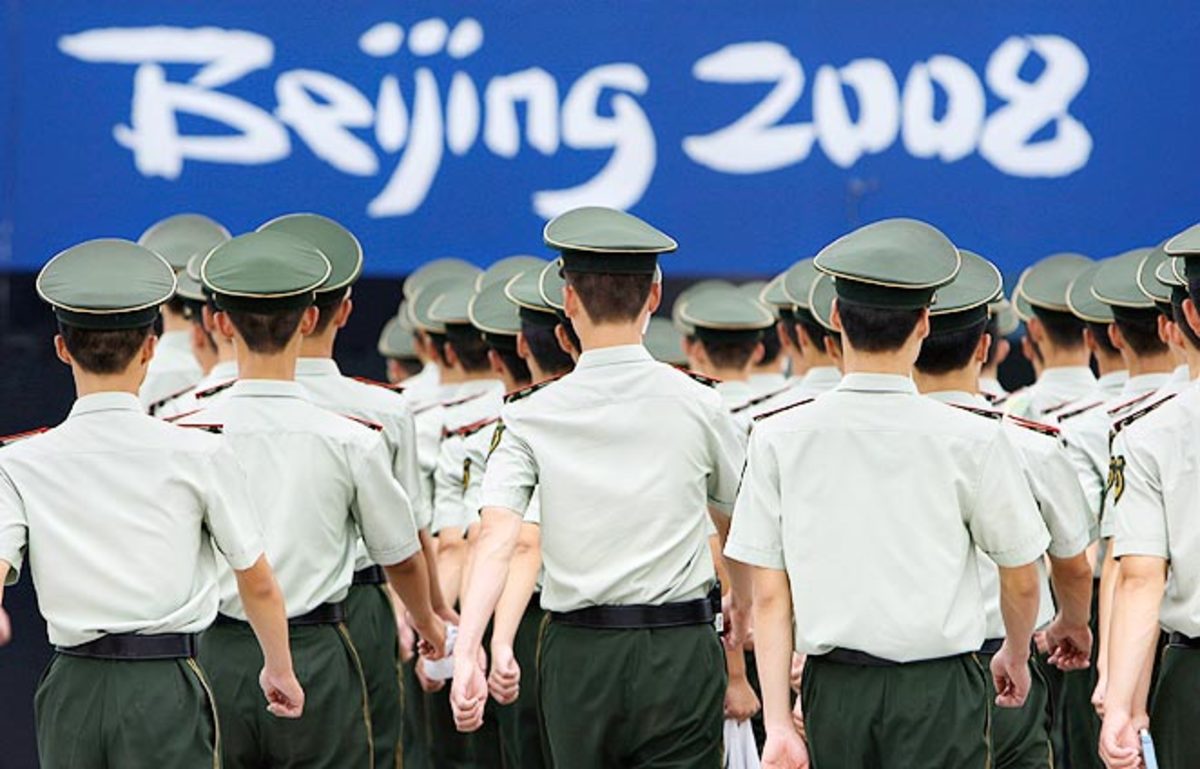Olympic Games after September 11: more expensive, less patriotic
It dawned on me this week that one of the Olympians I covered in Vancouver last year had just begun his bobsled career months before 9/11, and then was an alternate on his first Olympic team in Salt Lake City just months after 9/11. So I gave Steve Mesler, a 2010 gold medalist in four-man bobsled who retired after Vancouver, a call to ask how 9/11 changed things in his corner of the sports world. He recalled president Bush coming to talk to the team before opening ceremonies in Salt Lake City and telling the athletes how important it would be for Americans that they go out and perform their best. He recalled the athletes each being given a copper bracelet bearing the name of a dead New York firefighter or police officer. And he recalled walking toward the Olympic stadium during opening ceremonies and seeing snipers on buildings around the stadium silhouetted like shadow puppets against the evening sky.
"It was eerie," he says. "You could see tons of them on top of every single building, pacing back and forth. Inside the stadium, the lights were on so you couldn't see them anymore. ... I think every athlete from every country was certain something [bad] was going to happen."
And he remembers that the tattered American flag from Ground Zero was in the stadium.
"It was saying [to terrorists], 'F--- you. Here we are.'"
In other ways, we hid our patriotism a little more after September 11. After 9/11, Mesler says that "USA" was taken off the backs of the bobsled team's jackets that they used during the World Cup season in Europe, and they were told to keep the red, white and blue gear to a minimum when they hit the town on international trips.
"It wasn't until 2008 or '09 [that] they put USA back on our jackets," he says, adding that some athletes called them the "Obama jackets," as in: "'We elected Obama, so now you like us and we can have USA on our jackets,'" Mesler says.
Here's another way the Olympics have changed: in one morning, any discussion of security budgets for international sports mega-events went from involving six zeros to involving nine, making any Olympic bid a much shakier financial proposition. The last Summer Olympics before 9/11 were the 2000 Sydney Games. The security budget was a record $179.6 million, and included a record 5,000 police officers and 7,000 contract and volunteer security officers.
The next Summer Olympics were 2004 in Athens. The security budget? Over $1.5 billion. According to Allen Sanderson, a senior lecturer with a sports specialty in the Department of Economics at the University of Chicago, the sudden rise in security costs for Athens is one of many reasons that Greece is teetering on the edge of bankruptcy.
"It was not a prime cause of Greece going belly-up," he says. "But if it were a multiple choice question, and 'all of the above' were an option, the Olympics would be one of the answers."
According to an article in the Journal of Sport and Social Issues, the Beijing Games had a security budget of $6.5 billion, with 110,000 security personnel.
And even in the non-Olympic world, we now occasionally mortgage a civil liberty or two. At the 2006 World Cup in Germany, the German government temporarily privatized public spaces that fans would gather in to enable intensive surveillance by contracted companies. The staging of major American sports events, like the Super Bowl, now tend to involve meetings with Homeland Security officials. And some sports mega-events spur innovations in civilian security. Security for the London Olympics (security budget $1.5 billion and rising) will include a massive expansion of England's national DNA database.
I'm not a British taxpayer, but hopefully it will be worth it. Not because of any economic boon from the Games, if there is one at all, but because sports tend to seem like something worth paying for. Even when it's $200-or $400 on the secondary market-for the Cowboys Stadium Super Bowl "Party Plaza," i.e. a patch of grass where you can watch the game that's going on beyond the wall on a TV. That one was a bit lost on me, to be honest, but they promptly sold out. Something about sports can often seem worth it.






